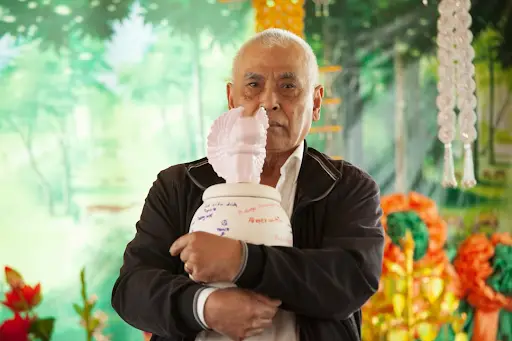
Reasons Why Cremation is Becoming More Popular Than Traditional Burial
In recent years, there has been a noticeable shift in the preferences for final arrangements, with cremation becoming increasingly favored over traditional burial methods. This change is attributed to a variety of factors that align with contemporary lifestyles and philosophies. The transformation reflects evolving societal values, including financial concerns, environmental considerations, and a desire for simplicity. This document explores the myriad reasons behind the growing popularity of cremation, shedding light on how cultural, economic, and personal preferences are shaping the choices we make for our final farewells.
Financial Concerns
One of the primary reasons why more individuals are opting for cremation over traditional burial practices is the significant disparity in cost. Traditional burials can impose a heavy financial burden, encompassing expenses like the acquisition of a burial plot, casket, grave marker, and the overall cost of the burial service. On the contrary, cremation services present a more cost-effective alternative, bypassing many of these high-cost requirements. The financial flexibility associated with cremation is particularly appealing in an era where economic uncertainty prevails and budget considerations weigh heavily on decision-making processes.
Environmental Considerations
When considering the environmental impact, it becomes evident that traditional burial methods raise valid concerns, contributing to the increasing favoritism towards cremation. The use of embalming chemicals in burials not only raises worries about soil contamination but also sparks discussions on the long-term effects on groundwater and surrounding ecosystems. Additionally, the eventual decay of caskets does not just add to land use and deforestation issues but also leads to concerns about the release of toxins into the environment. In stark comparison, cremation emerges as a more environmentally friendly choice, offering not only the option of scattering ashes in meaningful locations but also the potential for creating biodegradable urns that can contribute positively to the ecosystem by serving as habitats for plants or small animals, thus minimizing the ecological footprint left behind and aligning perfectly with sustainable practices.
Flexibility and Simplicity
The inherent flexibility and simplicity provided by cremation stand out as unmatched qualities that traditional burials struggle to emulate effectively. The intricate logistics surrounding burials often demand swift and time-critical decisions and arrangements, leaving little room for personalization and reflection. In contrast, cremation affords families the luxury of time to meticulously plan memorial services, create personalized keepsakes from the ashes, and deliberate on the disposition of ashes in a manner that best honors the memory of their loved ones. This simplicity and the ability to postpone decision-making can serve as a source of solace during the emotional turbulence of bereavement, providing a sense of control, thoughtful consideration, and an opportunity for healing and remembrance.
Changing Religious and Societal Norms
The changing landscape of religious and societal norms has significantly influenced the surging preference for cremation practices, marking a profound societal shift in end-of-life rituals. Many faiths, which once staunchly prohibited cremation due to religious beliefs and traditions, have now evolved to embrace it as an acceptable and respectful means of honoring the deceased. This shift not only eliminates a substantial obstacle for adherents but also reflects a broader societal acceptance of cremation as a dignified and meaningful way to commemorate the lives of the departed. Moreover, with the gradual secularization of society and the diversification of spiritual beliefs, the significance of traditional burial customs diminishes, paving the way for cremation to emerge as a universally appealing choice for individuals and families seeking a modern and inclusive approach to honoring their departed loved ones with reverence and grace.
Increasing Transience and Globalization
The escalating trend towards cremation rates is further propelled by the heightened mobility characteristic of modern society. Families today are more geographically dispersed than in previous eras, rendering burial in a family plot less practical. Cremation adeptly accommodates this modern transience by permitting the division of ashes among relatives or facilitating their transport to a chosen location with ease. The phenomenon of globalization has also introduced a rich tapestry of cultural practices and attitudes towards death, fostering a universal acceptance of cremation as a culturally sensitive and globally recognized end-of-life choice.
Personalization and Legacy
Lastly, the decision to opt for cremation often arises from a profound desire for personalization and the preservation of one's legacy. Unlike traditional burials, cremation offers a wide range of unique memorialization options. For instance, the ashes can be transformed into custom-made jewelry, incorporated into artistic pieces, or even used in the creation of coral reefs. This ability to customize one's final tribute not only allows for a more meaningful legacy but also brings comfort to grieving families who wish to honor their loved ones in a special and intimate way. By embracing such personalized options, individuals can ensure that their memory lives on in a truly distinctive and heartfelt manner.
The ascent of cremation over traditional burial is not merely a trend but a reflection of the profound changes in societal attitudes, financial realities, environmental consciousness, and global mobility. It encapsulates a collective shift towards practices that offer financial relief, environmental sustainability, and a greater degree of personalization and meaning in the way we honor our deceased. As our world continues to evolve, so too do our values and preferences concerning life's final passage.
Cremation, with its flexibility, simplicity, and adaptability to the diverse needs of modern society, stands at the forefront of this evolution. It represents a choice more in harmony with contemporary life, offering a pathway to memorialize our loved ones in a manner that resonates with our individual beliefs, circumstances, and aspirations. In recognizing and adapting to these changing preferences, society paves the way for more compassionate, personalized, and environmentally conscious commemorations of life.